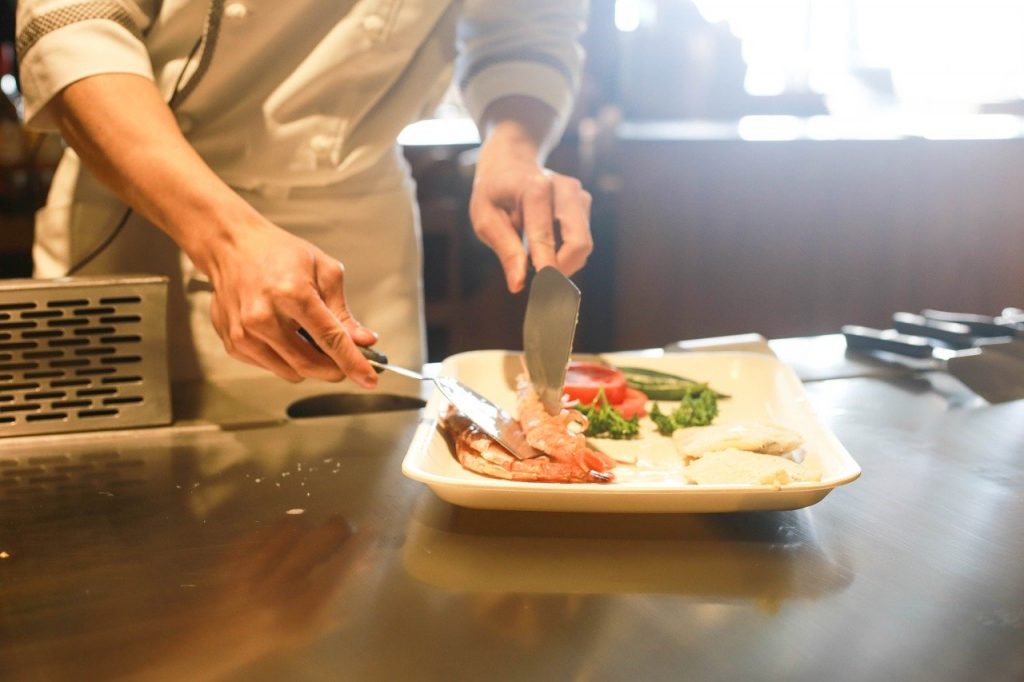The fast delivery of safe food is an essential goal of restaurants and other establishments of this type.
Those who prepare food should ensure the efficient and precise process to prevent dishes from losing their flavor and heat.
Food expeditors are the ones ensuring that the outcomes and eating experience are pleasant.
In the following guide, you will find relevant information about the job of a food expeditor including skills, duties, knowledge they need and more.
Article Table of Contents
What Does an Expeditor Do
Food expeditors deal with the preparation of the food as well as quality assurance.
They handle the dining operations and ensure that dinner orders are followed.
Expeditors should be able to work in a fast-paced and, occasionally, stressful environment.
They should be able to listen and speak efficiently, as well as lift and carry items, observe and address customer concerns.
They should also ensure that the standards of the restaurant, food safety regulations, and sanitation are being followed before serving the dishes to customers.

Responsibilities
- Read tickets and forms for orders.
- Monitor the preparation of dishes and fulfillment of in-house or to-go orders.
- Inspect dishes for correspondence with the diners’ orders, company standards, and health and sanitary regulations.
- Inform diners if there’s a delay in the preparation of their orders.
- Consult with cooks and other staff to find out the availability of the items on the menu.
- Stock ingredients and supply room.
- Pack and deliver the orders to-go.
- Bring plates, bowls, drinks, etc., to diners if needed.
Essential Skills
Communication:
Expeditors should listen and speak to others in the kitchen.
Often, they have to raise their voices to get attention over the noise.
They may receive directions and messages from multiple people at the same time or within a short time.
They have to prioritize with whom to communicate at a specific moment.
Detail-oriented:
Food expeditors should pay a great deal of attention to detail when preparing and presenting food.
They should review the plates, so they have all the items that a customer ordered.
Also, they must ensure that the temperature of the food is right, and it’s prepared according to the standards of the establishment.
They should also know how to inspect the plate for smudges, chips, cracks, or spills.
Besides, they should check the plates for any foreign items on them, such as hair.
Physical:
Food expeditors constantly walk around the restaurant as well as lift and carry items.
They should be strong enough to be able to lift items up to 70 pounds as well as have coordination and steadiness to carry heavy trays with multiple dishes and drinks.
They also need good stamina to handle the heat and humidity in the kitchen generated by stoves, ovens, or boiling water.
How to Become Food Expeditor
Food expeditors don’t need a formal education.
However, they may obtain significant knowledge and skills from post-secondary classes and training on food handling and preparation dishes.
In some states, they may need a food handling certificate.
Experience can also be helpful in obtaining the position.
Training and Qualifications
Generally, food expeditors don’t need any degrees.
Most employers hire expeditors with a high school diploma.
Some may hire candidates even without one.
Besides food safety classes, expeditors may also take hospitality or culinary courses.
In such programs, they can learn about the operations of restaurants, hotels, as well as flavors, ingredients, and techniques for food preparation and their components.
New hires may be trained by restaurants, hotels, and other establishments in the company’s standards, signature tastes, methods, flavors, and dishes.
Reading and studying menus and other guides provided by the employer are also involved in the training process.
This is especially true for franchises or chain restaurants.
Experience
The required experience depends on the type of restaurant or eating establishment.
Upscale and fine dining restaurants may require experiences in food preparation, or similar restaurants, or as a food service expeditor.
In some establishments, the applicants can be hired without any experience as a food expeditor.
Even in this case, having experience in a food service setting can be useful.
If you’re looking for a job in a resort or hotel, you may need to have experience in travel or lodging accommodations.
Nursing homes or group residential facility expeditors can benefit from jobs related to food preparation or other jobs in the setting.
Food delivered to nursing homes or institutionalized residents should follow specific nutritional and safety regulations.
Working Hours
Expeditors work evening and weekend shifts a lot.
Most restaurants are open until late evenings and have peak hours on weekends.
However, at quality service restaurants, there can be a significant number of diners on a given evening that need to be served, since such restaurants don’t take reservations.
On the other hand, restaurants that take reservations usually work in the late afternoons and evenings.
Food expeditors can also work in the daytime if a restaurant serves lunches and breakfasts.
Only some restaurants are open around the clock.
Expeditors can also have shifts scheduled for holidays.
According to Forbes, which reports the survey of a National Restaurant Association, in 2017, 9% of the US citizens spent Thanksgiving in a restaurant, compared to 6% in 2011.
Career Outlook
The constant activity in the foodservice industry keeps the demand for restaurant jobs, including expeditors, high.
As the National Restaurant Association reports, the restaurant sales in the US in 2017 reached $799 billion.
There are more than a million restaurants across the US.
Also, 1.6 million of new restaurants are expected to be opened in the country by 2027.
With increasing population and disposable income, the demand for dining services will rise.
According to Deloitte, food spending for households and individuals amounts to 44% for dining in restaurants compared to cooking at home.
Besides the restaurant industry, the demand for expeditors and other food service workers will grow in the hospitality and healthcare industries as well.
The increase in the hotel sector was at 5-6% as of 2018.
The Bureau of Labor Statistics predicts an 8% growth in the employment of “Food Preparation Workers” by 2026.
In 2016, 871,100 workers were employed in the industry.
Additionally, the experience as a food expeditor can be a good basis for those seeking jobs as cooks, chefs, or restaurant managers.
Conclusion
Expeditors in the food industry should keep the quality of meals and work under time pressures and physically demanding conditions.
Also, food expeditors have to know how to determine the safety of meals and other prepared food and quality assurance.
The demand for these professionals should grow as more people choose to dine out.
